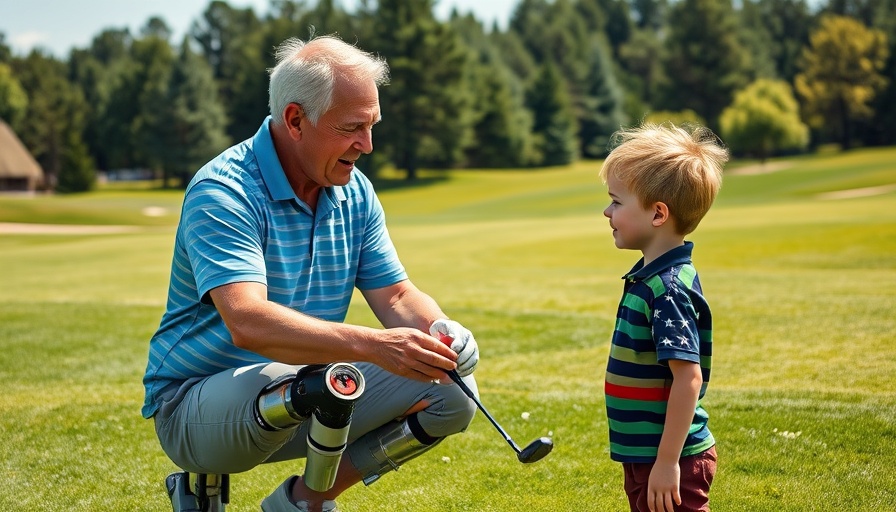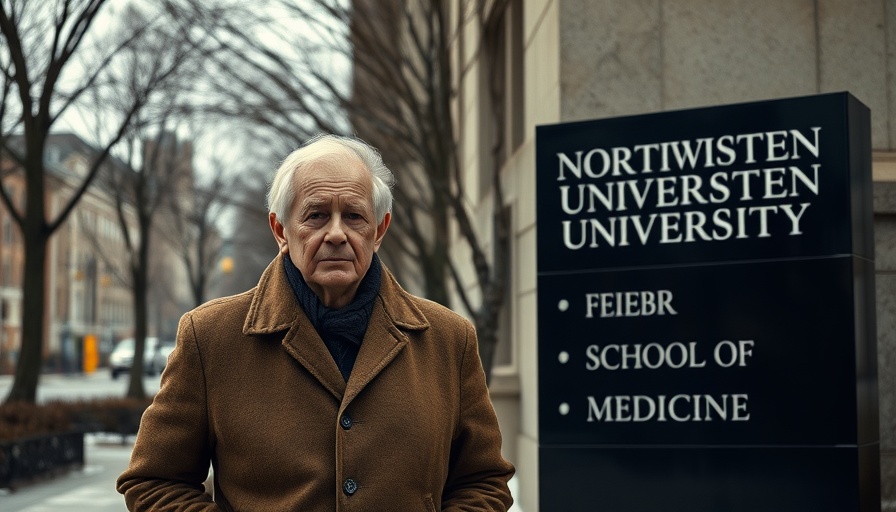
Inspiring Journey of Jordan Thomas
In a world where resilience often defines our success, Jordan Thomas stands out not just as a talented golfer, but as a figure of hope and determination. At just 16 years of age, his life was irrevocably changed when a boating accident in the Florida Keys led to the loss of both legs below the knee. However, instead of succumbing to despair, Jordan chose to turn his tragedy into a mission. Not only did he return to the sport he loves, but he also established the Jordan Thomas Foundation, aiming to aid children who need prosthetics but face barriers due to insurance limitations.
The Birth of a Foundation
What’s especially remarkable about Thomas' story is his immediate focus on others during his darkest days. Just nine days post-accident and from his hospital bed, he began conceptualizing the foundation, a clear indicator of his inherent strength and leadership. “I’m a bit of a disruptor,” he says, reflecting on how the healthcare system often fails those with limb loss. His insights unveil a systemic issue many face in silence. Through his foundation, which has raised over $10 million, Thomas has impacted more than 200 children, providing the necessary physical and emotional support they desperately need.
The Importance of Accessibility
Jordan’s journey resonates deeply in today's conversations about access to healthcare and rehabilitation services. His critiques of the insurance system shed light not only on the bureaucratic challenges families face but also spotlight the disparity between those who have financial support and those who do not. This ongoing battle is one that many families encounter, and Thomas’ efforts aim to disrupt an outdated system. His perspective serves as an unsettling reminder of how our existing frameworks may fail those most in need.
Rebuilding Life Through Sport
Golf has been more than a sport for Thomas; it has been a therapeutic outlet. He emphasizes how the mental and physical aspects of the game have played a pivotal role in his recovery. Golf taught him about patience, resilience, and the spirit of community. As he gears up for the 2025 U.S. Adaptive Open, his excitement is palpable, a testament to how far he has come since that fateful day. Being able to return to the golf course—before even walking—speaks volumes of his tenacity and passion.
Future Predictions: Golf and Inclusivity
As Jordan prepares for major competitions, his story serves not just as inspiration but as a call to the golfing community and beyond. The effort towards inclusivity in sports is increasingly important, and with athletes like Thomas at the forefront, there is hope for broader acceptance and support for adaptive sports. His advocacy not only changes the narrative around disability in sports but also encourages other athletes to seek their paths irrespective of physical limitations.
Leadership ThroughAdversity
Jordan Thomas exemplifies leadership through adversity, using his platform to evoke change. His experiences remind us that every setback can be a setup for a comeback. This is particularly pertinent for middle to high-income professionals who often grapple with their challenges while trying to balance personal and professional lives. Understanding that resilience isn't about the absence of struggle but rather how we choose to engage with it can be transforming.
Be Inspired, Act for Change
Jordan's commitment to helping others is both empowering and motivating. It invites all of us—especially those within the fitness community—to consider how we can contribute to making our environments more inclusive for all individuals. Ask yourself, are there ways I can lend my support, whether through volunteering, donations, or simply sharing their stories? As we continue to navigate through wellness and fitness challenges, let’s also contribute to making a change in the lives of those who need it.
In an era where mental health and inclusive wellness are at the forefront, Jordan Thomas’ journey stands as a beacon of hope. He demonstrates that sports can be a powerful tool for recovery and a catalyst for social change. By sharing, supporting, or starting initiatives, everyone can play a part in building a more inclusive society.
Support the Jordan Thomas Foundation and help change lives today!
 Add Row
Add Row  Add
Add 




Write A Comment